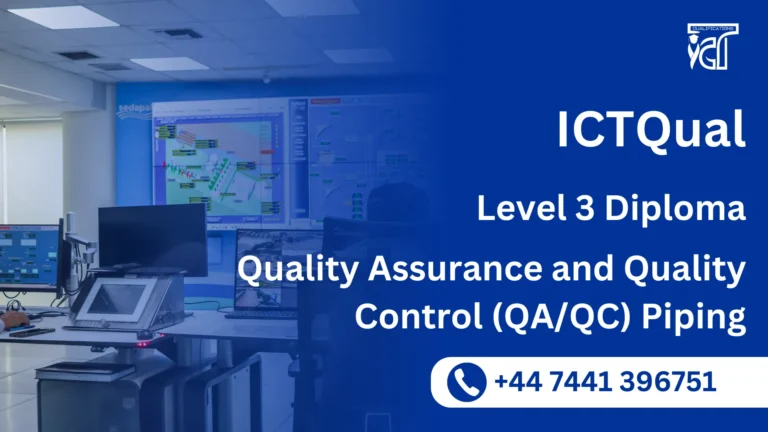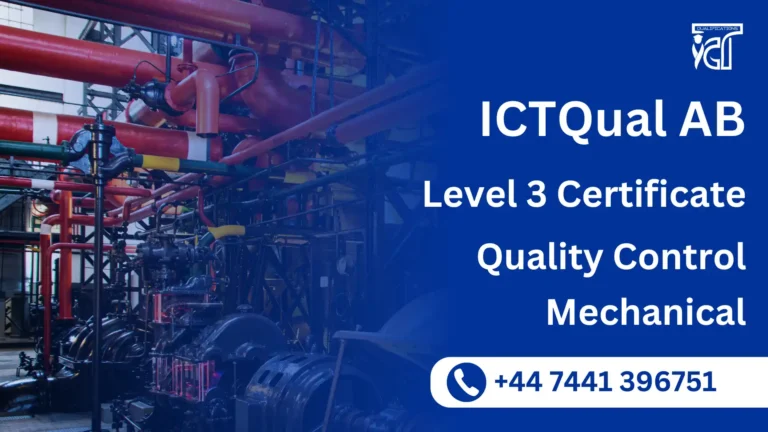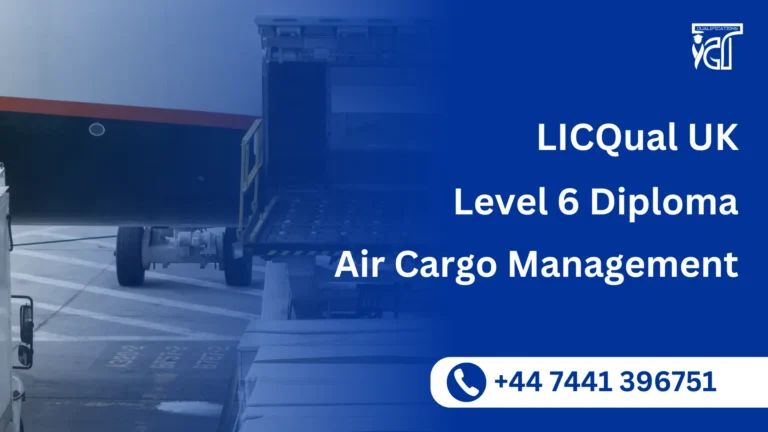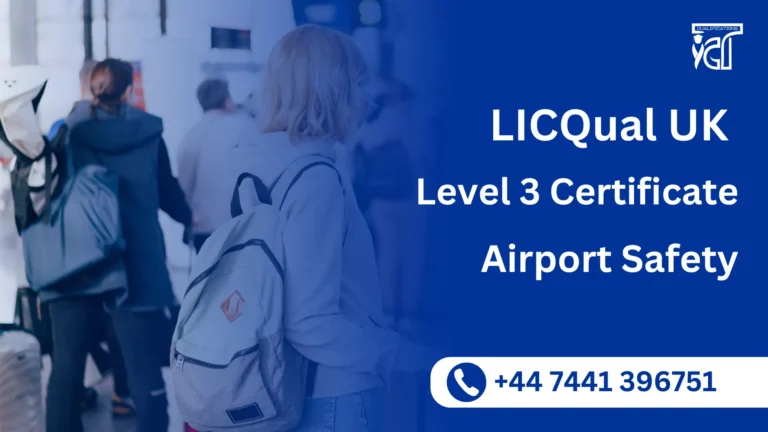Working in confined spaces is a high-risk activity that demands specialized training, strict adherence to safety protocols, and thorough operational knowledge. The LICQual Level 3 Award in Confined Space is a globally recognized qualification designed to equip professionals with the essential skills and competencies required to work safely and effectively in confined space environments.
This course is tailored for workers, supervisors, and safety professionals who operate in hazardous environments such as tanks, tunnels, silos, ducts, and manholes. It ensures compliance with international safety standards and regulatory frameworks, making it a critical asset for career development and organizational safety performance.
The LICQual Level 3 Award in Confined Space is a practical and competency-based qualification developed to provide learners with a solid foundation in confined space operations. This includes hazard identification, risk assessment, safe entry and exit procedures, atmospheric testing, and the proper use of personal protective equipment (PPE).
This award is ideal for individuals who are new to confined space work, as well as those looking to formalize their skills with a recognized certification. Regulated and aligned with international standards, the qualification is widely accepted across sectors such as construction, utilities, oil and gas, facilities management, and more.
The LICQual Level 3 Award in Confined Space is more than just a qualification—it’s an essential step toward safer operations and professional credibility. Whether you’re entering the field or enhancing your team’s capabilities, this award provides the knowledge, skills, and confidence required to work safely in confined spaces.
LICQual Level 3 Award in Confined Space
Following are the mandatory units of LICQual Level 3 Award in Confined Space:
| Unit Ref# | Unit Title | Credit | GLH |
| LICQ2200406-1 | Introduction to Confined Spaces | 1 | 3 |
| LICQ2200406-2 | Hazard Identification | 1 | 3 |
| LICQ2200406-3 | Risk Assessment and Control Measures | 1 | 3 |
| LICQ2200406-4 | Safety Equipment and PPE | 1 | 3 |
| LICQ2200406-5 | Emergency Procedures and Rescue Planning | 1 | 3 |
| LICQ2200406-6 | Legal and Regulatory Compliance | 1 | 3 |
GLH (Guided Learning Hours) and TQT (Total Qualification Time) are terms commonly used in vocational qualifications to help define the amount of time a learner is expected to spend on their studies.
1. GLH (Guided Learning Hours)
GLH refers to the number of hours a learner spends being directly taught, supervised, or supported during their course. This includes the time spent in activities such as:
- Classroom instruction
- Practical workshops
- One-on-one tutoring or mentoring sessions
- Online learning sessions with tutor support
In other words, GLH represents the time that learners are actively engaged with their instructors or learning activities.
2. TQT (Total Qualification Time)
TQT represents the total amount of time a learner is expected to invest in completing a qualification, including:
- GLH (Guided Learning Hours): Time spent on direct learning, as explained above.
- Self-Directed Learning: This includes time spent on independent study, research, assignment completion, preparation for exams, and any other work the learner does outside of direct teaching hours.
TQT is a broader measure that includes all the time required to achieve the qualification. It helps learners and employers understand the overall commitment required for the qualification.
Key Differences Between GLH and TQT:
- GLH focuses on direct learning with guidance or supervision.
- TQT includes GLH as well as independent study time and other learning-related activities.
Example:
If a qualification has a TQT of 600 hours and a GLH of 250 hours, it means the learner should spend 250 hours in direct learning (classroom, online, or tutor-led sessions) and 350 hours on independent study or research.
By the end of this course, learners will be able to:
- Introduction to Confined Spaces
- Understand what constitutes a confined space and the associated risks.
- Identify the types of confined spaces encountered in various industries and the hazards associated with them.
- Hazard Identification
- Recognize the common and potential hazards present in confined spaces, including atmospheric, mechanical, and physical risks.
- Conduct effective hazard assessments in confined space environments to ensure safe entry and work.
- Risk Assessment and Control Measures
- Perform a thorough risk assessment for confined space work, identifying key hazards and evaluating the level of risk.
- Implement control measures to minimize identified risks, ensuring the safety of workers and the environment.
- Safety Equipment and PPE
- Identify the appropriate safety equipment and personal protective equipment (PPE) needed for confined space work.
- Understand the correct use, maintenance, and limitations of PPE, such as respirators, harnesses, and gas detectors, to ensure safety during confined space entry.
- Emergency Procedures and Rescue Planning
- Develop and implement emergency procedures and rescue plans for confined space incidents.
- Understand the roles and responsibilities during an emergency and ensure preparedness for quick, effective rescue operations.
- Legal and Regulatory Compliance
- Understand the legal and regulatory requirements governing confined space entry and work.
- Ensure compliance with industry-specific standards and health and safety regulations to minimize the risk of legal liabilities.
Key Benefits of the LICQual Level 3 Award in Confined Space
- Globally Recognized Certification
This qualification is accepted across multiple industries worldwide, enhancing your employability and professional credibility in high-risk sectors. - Compliance with Health & Safety Standards
The course is designed to align with international legislation and confined space safety standards, ensuring your organization meets legal and regulatory obligations. - Short Duration, High Impact
This focused training can be completed in just a few days, delivering essential knowledge and practical skills without long-term study commitments. - 100% Assignment-Based – No Exams
Learners are assessed through practical tasks and written assignments, allowing them to demonstrate real-world understanding without the pressure of formal exams. - Immediate Workplace Application
The course content is designed to be directly applicable to the workplace, empowering learners to implement safe practices immediately. - Boosts Personal and Team Safety
Gain the skills needed to identify hazards, use safety equipment correctly, and follow permit-to-work systems, greatly reducing the risk of confined space accidents. - Ideal for a Wide Range of Roles
Whether you’re a technician, supervisor, or safety officer, this award equips you with essential competencies relevant to confined space environments. - Pathway to Advanced Qualifications
Serves as a foundation for progression to more advanced certifications such as the LICQual Level 3 Diploma in Advanced Confined Space Operations or other health and safety diplomas. - Flexible Learning Options
Available through online, classroom, or blended learning formats, making it accessible to professionals with varying schedules and locations. - Strengthens Organizational Compliance and Culture
Equipping employees with certified training supports a culture of safety, risk awareness, and operational efficiency within your organization.
Who Is This Diploma Ideal For?
The LICQual Level 3 Award in Confined Space is designed for individuals who operate in or manage environments where confined space work is a regular requirement. It is particularly suited for:
- Industry professionals in sectors such as construction, oil and gas, utilities, and manufacturing, where confined space entry is a routine aspect of operations.
- Supervisors, managers, and team leaders responsible for overseeing confined space activities and ensuring adherence to safety protocols and legal compliance.
- Health and safety officers or safety managers tasked with risk assessments, enforcing safety standards, and maintaining regulatory compliance in hazardous workspaces.
- Operatives and technicians directly engaged in confined space tasks who require up-to-date training in safety procedures and emergency response.
- Employees needing certification to meet internal policies or external regulatory requirements for confined space work.
- Professionals seeking career advancement in areas such as occupational health and safety, risk management, or technical operations.
- Anyone requiring formal training and certification to safely perform confined space entry and respond effectively to emergencies.
This course provides essential knowledge and skills for anyone involved in confined space operations, whether hands-on or in a supervisory role.
Entry Requirements
Register Now
Qualification Process
Qualification Process for the LICQual Level 3 Award in Confined Space
- Self-Assessment:
Begin by evaluating your eligibility to ensure you meet the qualification requirements, including work experience, knowledge, and language proficiency. - Registration:
Complete your registration by submitting the required documents, including a scanned copy of a valid ID, and paying the registration fee. - Induction:
An assessor will conduct an induction to confirm your eligibility for the course and explain the evidence requirements. If you do not meet the criteria, your registration will be canceled, and the fee will be refunded. - Assignmnets & Evidence Submission:
Provide all assignmnets and the necessary evidence based on the assessment criteria outlined in the course. If you are unsure of the required evidence, consult with the assessor for guidance on the type and nature of evidence needed. - Feedback and Revision:
The assessor will review your submitted evidence and provide feedback. Evidence that meets the criteria will be marked as “Criteria Met,” while any gaps will be identified. You will be asked to revise and resubmit if needed. - Competence Evidence:
Submit final evidence demonstrating that all learning outcomes have been met. This evidence will be marked as “Criteria Met” by the assessor once it is satisfactory. - Internal Quality Assurance (IQA):
The Internal Quality Assurance Verifier (IQA) will review your evidence to ensure consistency, quality, and compliance with standards. - External Verification:
The IQA will submit your portfolio to LICQual External Quality Assurance Verifiers (EQA) for final confirmation. The EQA may contact you directly to verify the authenticity of your evidence. - Certification:
Upon successful completion of all checks, LICQual will issue your official certificate, confirming that you have attained the LICQual Level 3 Award in Confined Space.







